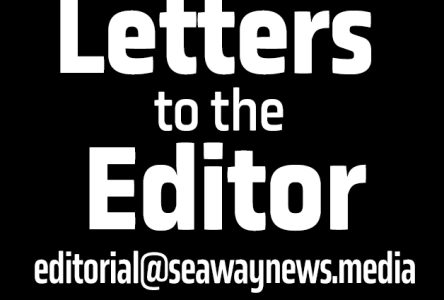Skepticism is one of the biggest problems our country faces today. Do you concur with that statement? Probably not, because it is hard to get anybody to agree on anything these days.
“People cannot tell what is true and what is not.” While this statement reflects our current reality, it is actually the number 1 “potential issue” identified by Policy Horizons Canada in its The Disruptions On the Horizon 2024 report which assesses 35 disruptions for which Canada may need to prepare.
“The information ecosystem is flooded with human and artificial intelligence-generated content. Misinformation and disinformation make it almost impossible to know what is fake or real. It is much harder to know what or who to trust,” reads the report prepared by the federal government organization that informs public servants about potential problems.
“While the disruptions in this report are not guaranteed to take place, they are plausible — and overlooking them may carry risks in various policy areas,” the report stresses.
Despite its theme, the Horizons document is not all that frightening, primarily because we are living with most of the potential disruptions already.
For instance, the nine other top troubles include scenarios such as “Biodiversity is lost and ecosystems collapse. There is an irreversible loss of biodiversity and a collapse of ecosystems due to habitat destruction, overexploitation, pollution, and climate change.”
We must fret about fires, floods, tornados, and hurricanes become more frequent and severe. “The world is in a perpetual state of emergency, and unable to respond adequately and sustainably.”
Cyberattacks may cause “interruptions to essential services such as the Internet, electricity, transportation, water, and food supply systems are common due to regular cyberattacks, disrupting everyday life.”
“Billionaires run the world: Extremely wealthy people use their platforms, firms, foundations, and investments to shape public policy, imposing their individual values and beliefs and bypassing democratic governance principles.”
Of course, there is a warning about artificial intelligence running wild, its usage becoming pervasive. “Society cannot keep up, and people do not widely understand where and how it is being used.”
We could face the dilemma of demand for water, sand, and critical minerals outpacing supply. Access to resources could be either limited by a dwindling finite supply or controlled by a few suppliers.
Or, there is the fear that downward social mobility could become the norm. “People cannot enter the housing market and face increasingly insecure work arrangements. Many Canadians find themselves in lower socioeconomic conditions than their parents,” reads the scenario description.
There’s more. “Healthcare systems collapse: The healthcare system breaks down and cannot respond to the daily needs of Canadians, much less to crises.”
Finally, rounding out the top ten: “Democratic systems break down: Authoritarian regimes vastly outnumber democracies and the struggle between the two ideologies is messy in many countries. Some authoritarian countries experience regular pro-democracy protests, while in many democratic countries, duly elected officials pass legislation that dismantles key democratic institutions.”
Other possible disruptions include civil war in the United States, ineffective antibiotics and a world war.
You do not need to conduct a study to conclude that humans will continue to do bad things. The sky may not be falling, yet, but space debris is becoming a threat to public safety. Recently, a piece of orbital junk, likely a piece from a satellite, plunged into a field in Saskatchewan.
If we think of all of the real and imagined problems in the world, we would never sleep again.
But then again, you will snooze like a baby if you don’t believe any warnings, especially warnings issued by governments.
Take the pandemic, please. By all accounts, if our planet does not implode, eventually we are bound to be hit with another worldwide health scourge, similar to COVID-19. Some are still arguing about measures taken to deal with the coronavirus, which conspiracists contend was a hoax.
Obviously, we must be vigilant not paranoid. Fail to prepare; prepare to fail.
But all of the preparations in the world will be futile, unless everyone is on the same page. Arriving at a consensus on any topic will be impossible when so many cannot separate fact from fiction.



